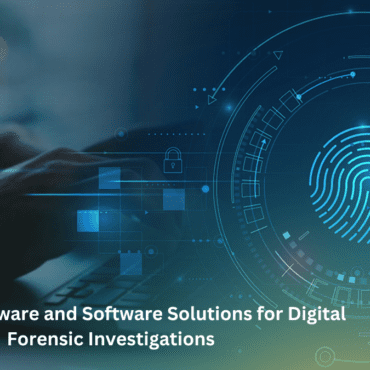The introduction of forensic science has resulted in an evolutionary change in India’s criminal justice system. Recent developments in forensic technology have completely changed how criminal cases are investigated and resolved. This blog explores the complex relationship between forensic science and India’s criminal justice system, looking at its contributions, difficulties, and the transition from old techniques to advanced technologies.
The Historical Context:
Traditionally, criminal investigation in India strongly depends on eyewitness account, confessions and circumstantial evidence. The shortcomings of these methods led to the incorporation of forensic science, introducing a systematic and scientific approach to crime solving. The evolution of Forensic Science in India can be traced through the establishment of forensic laboratories in India, the adoption of modern techniques, and the increased collaboration between forensic experts and law enforcement agencies.
Challenges in Implementation of Forensic Science:
Infrastructure and Resources
Even with significant progress, many forensic laboratories in India face challenges related to outdated infrastructure and limited resources. A shortage of qualified and trained professionals further hampers in the timely and effective analysis of evidence. To overcome these challenges, investments in updated forensic facilities are essential.
Backlog cases
Forensic science laboratories in India often struggle with a backlog of cases leading to delays in delivery of justice. Due to excessive amount of cases and lack of resources, more financing, staffing and strategic planning are required in order to reduce the backlog and speed up investigations.
Awareness and Training
Law enforcement agencies, legal professionals and judges all need to be better aware of and trained about uses, applications and limitations of forensic science. Gaining a thorough understanding of forensic techniques ensures that the evidence is properly collected, preserved and presented in the court.
Impact on Criminal Justice System:
Increased Conviction rates
The use of Forensic science has significantly contributed to higher conviction rates in India. Forensic science has been crucial in ensuring that those are responsible held accountable by producing valid and solid evidence.
Exoneration of Innocent
Forensic science has not only helped in convicting the guilty but also in exonerating the innocent by highlighting the importance of accurate and reliable forensic evidence in ensuring justice.
Deterrence Effect
The knowledge that forensic science is a powerful tool in crime detection acts as a deterrent. Criminals are becoming even more aware of the fact that leaving behind traces of their crimes makes them much more likely to be discovered and punished with. This deterrence effect contributes to crime prevention and public safety.
The Evolving Landscape of Forensic Science In India:
Technological advancements
With the advancement of technology, the field of forensic science evolves accordingly. India has witnessed the adoption of modern technology such as improved imaging methods, latest sequencing and digital forensics. These advancements enhance the ability of forensic professionals to solve complicated cases and strengthen the overall effectiveness of criminal justice system.
International Collaboration
India has actively involved in collaborative efforts with international forensic organizations, promoting exchange of knowledge and skill development. Collaborations with foreign agencies helps Indian experts stay up to date on international best practices and improves their proficiency. International collaborations contribute to the continuous improvement of forensic science in India.
Legislative Reforms
Recognizing the importance of forensic evidence in criminal investigations, there have been efforts to strengthen the legal framework surrounding its admissibility in court. Clear guidelines on the collection, preservation and presentation of forensic evidence enhances the legitimacy of the criminal justice system.
Challenges in the Forensic Examination Process:
Quality Assurance
It is important to maintain the integrity and quality of forensic evidence. Accreditation of forensic laboratories and proficiency testing are two crucial quality assurance techniques that ensure the accuracy of forensic examinations. Continuous monitoring and assessment enhance the validity of forensic findings in legal proceedings.
Interdisciplinary Collaboration
The fields of forensic science need to work together including digital forensics, biology, chemistry, physics, ballistics, fingerprint, etc. It is necessary that various forensic professionals maintain good communication and collaboration for thorough and accurate analysis. Interdisciplinary training and coordination contribute to a comprehensive approach for crime solving.
Admissibility of Evidence
One of the most important aspects of influence of forensic science on criminal justice system is its admissibility in court. Forensic evidence cannot be used effectively in court unless it adheres with legal requirements and is presented in a way that juries and judges can understand. Legal professionals need to be well versed in the scientific principles underlying forensic evidence to make informed decisions regarding the admissibility of forensic evidence.
Case studies – Notable Examples of Forensic Impact:
Aarushi Talwar Case
The Aarushi Talwar double murder case in 2008 saw the extensive use of forensic evidence. DNA profiling played a crucial role in establishing the identity of the victims and linking suspects to the crime scene. The case demonstrated the importance of forensic science in high profile investigations.
Nirbhaya Gang Rape Case
The brutal gang rape and murder of Nirbhaya in 2012 prompted widespread outrage and led to significant changes in India’s legal landscape. Forensic evidence, including DNA analysis and medical examinations, played a crucial role in investigation and subsequent conviction of the offenders. The case highlighted the importance of timely and accurate forensic examinations in heinous crimes.
Conclusion:
India’s criminal justice system has entered a new era because of forensic science, which has completely changed how crimes are looked at, prosecuted and convicted. From crime scene analysis to digital forensic, forensic science has made significant contributions to ensuring justice for both the guilty and the victims, as well as improving the conviction rate.
Even though there are still issues like infrastructure, backlog of cases and awareness raising to deal with, there is potential for the future of forensic science in India. Continued investments, in technology, international collaborations, legislative reforms, and interdisciplinary training are essential to address these challenges and further enhance the impact of forensic science on the criminal justice system.
The successful integration of forensic science into India’s criminal justice system requires a comprehensive approach involving not only advancements in technology but also improvements in infrastructure, training, and legal framework. The collaboration between forensic science and the criminal justice system is set to grow stronger as India proceeds on this progressive path, promoting an impartial, dependable, and effective system that promotes the rights of justice and those who aims to defend it.
References:
Sehgal, D.R. (2020). Forensic Science In Criminal Justice System. [online] iPleaders. Available at: https://blog.ipleaders.in/forensic-science-criminal-justice-system/.
lawwiser. (n.d.). Role of Forensic in the Indian Criminal Justice System. [online] Available at: https://lawwiser.com/videos/role-of-forensic-in-the-indian-criminal-justice-system/ .





Post comments (0)